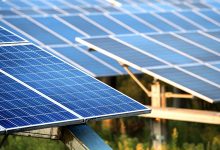New analysis by the Clean Energy Council has found new investment commitments for large-scale renewable energy projects more than halved in 2019, slashing billions in investments from Australia’s clean energy sector.
The outcome has prompted the Clean Energy Council to issue renewed calls for action on a range of grid connection issues that have halted investment in projects in large parts of the electricity market, with the need for reforms to energy market regulations becoming even more urgent.
“These issues need to be resolved urgently if Australia hopes to attract investors and ensure the necessary level of new energy generation capacity,” CEC chief executive Kane Thornton said.
“Renewable energy has been the shining light in reducing emissions in Australia. If we hope to maintain this, we need strong leadership and collaboration to address the policy gaps and regulatory barriers facing new generation.”
The Clean Energy Council found that just 28 projects were approved for investment in 2019, totalling $4.5 billion in projects, down from 51 projects worth $10.7 billion in 2018. The drop in new investment commitments has had flow-on impacts for construction activity in the sector, with a lack of new projects significantly depleting the pipeline of new projects.
“A continued slow-down in new investment will put greater pressure on reliability and power prices as Australia’s old coal-fired power stations continue to close. New investment is critical to replacing these coal-fired power stations and delivering on Australia’s emission reduction targets,” Thornton added.
The Clean Energy Council found that there had been a significant drop in confidence amongst investors and project developers in the renewable energy sector, due to ongoing energy policy uncertainty and growing frustrations with grid connection and loss-factor issues that have plagued projects.
Publishing the results in its recent Clean Energy Outlook, investment confidence fell to its lowest level since the start of the sector survey, with business leaders indicating the electricity market rules around grid connection and marginal loss factor determinations were no longer fit for purpose.
“As we have consistently said, without strategic and holistic reform of the Australian energy market, we are going to continue to see confidence in new clean energy investment continue to fall,” Thornton said upon the release of the report.
Several renewable energy projects in Victoria and New South Wales have faced indefinite delays in successfully being connected to the grid, following constraints in network infrastructure in the region.
The Australian Energy Market Operator also directed five existing projects to cut their output by half, to manage unexpected voltage stability challenges, without providing a clear indication of how and when the issues may be resolved.
Both issues have significantly impacted the revenues of completed and near-completed projects, and have been a major contributor to the growing hesitation amongst project investors and developers to commit to new projects.
The Clean Energy Council’s analysis mirrors that of BloombergNEF released earlier in the month, which found investment in new large-scale renewable energy projects in Australia fell by around 60 per cent in 2019.
Prime Minister Scott Morrison and federal energy minister Angus Taylor have sought to talk up the level of renewable energy investment in Australia, taking advantage of the surge of investments that were spurred by the looming peak of the Renewable Energy Target.
Morrison repeated, as recently as Wednesday during a speech to the National Press Club that “we’ve got record levels of renewable investment”.
The findings from both the Clean Energy Council and BloombergNEF show that this is no longer the case.











